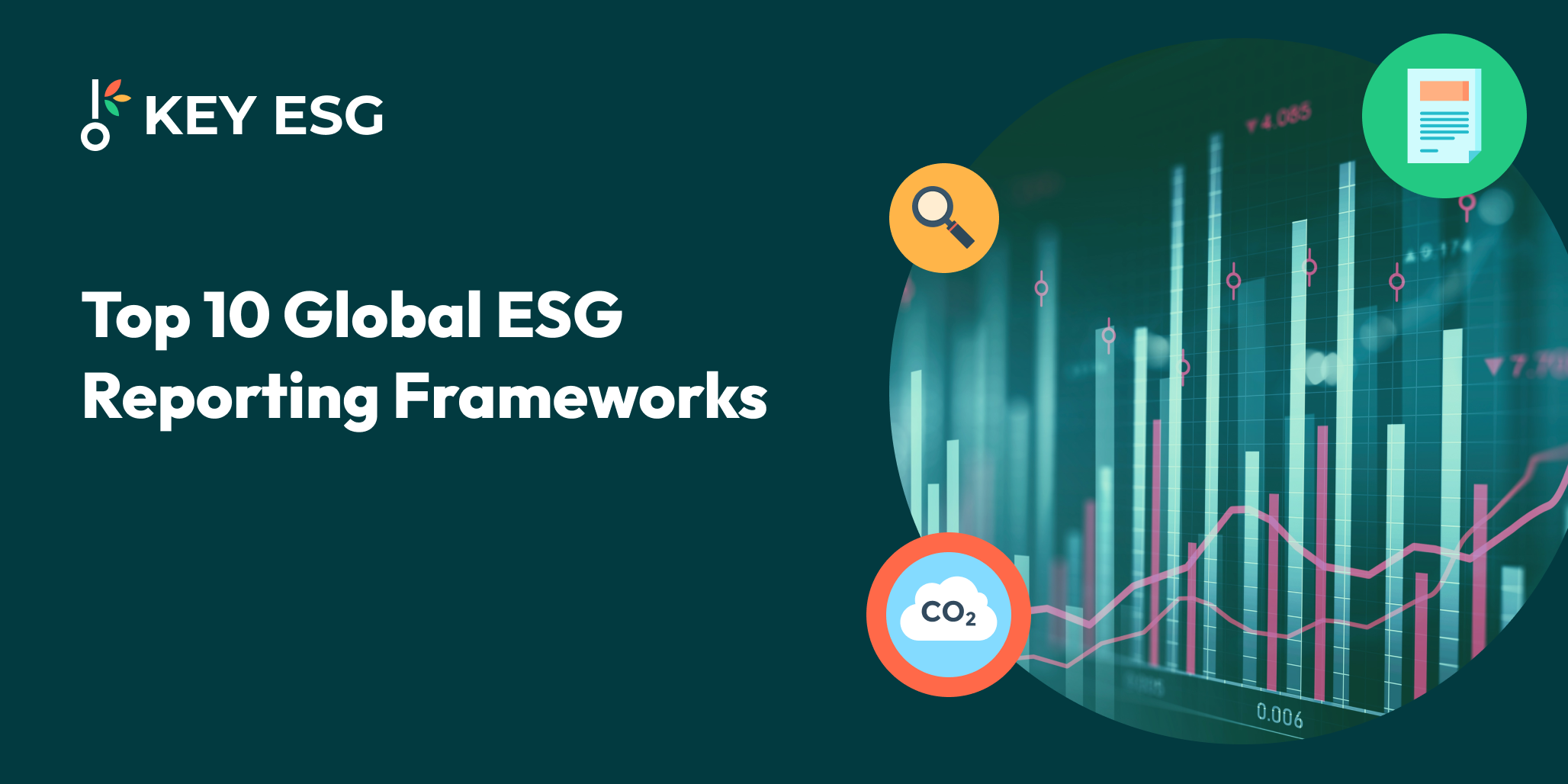
CSRD reports: the first wave
The 1st January 2025 marked the beginning of reporting for the Corporate Sustainability Reporting Directive (CSRD). We are already starting to see the first wave of eligible companies (who fall into the criteria outlined in this whitepaper) publish their CSRD reports alongside their financial reports.
In our efforts to make ESG reporting accessible for the business user, KEY ESG has compiled a comprehensive list and database of 500 company CSRD reports with details of industry, company size and country. This will help those who are preparing for CSRD reporting to easily find comparable businesses on which to draw inspiration from.
KEY ESG's CSRD reports library contains:
- 500 company reports from 35 different countries and territories, led by Germany (13%), Netherlands (11.2%), France (10.8%), Denmark (8.4%) and Finland (7.4%)
- Industries: the library includes reports from 42 different NACE code categories across 14 major industry divisions, representing approximately 85% of all regulated economic activity in the EU
- Company size range: 100-600,000+ employees
- Small enteprises (under 1000 employees): 21%
- Medium enterprises (1000-10,000 employees): 45%
- Large enterprises (10,000-100,000 employees): 28%
- Very large enterprises (100,000+ employees): 6%
- Stock exchange listings: 77% of all companies which submitted CSRD reports are publicly listed on stock exchanges
- Reporting year: 93% from 2024, 7% from 2023
- Voluntary reporting: around 40% of all the reports in KEY ESG's library were published by companies located in the EU member states where CSRD has not been officially transposed into the national law. This implies that those reports are voluntary. More information can be found here.
It’s worth noting that since Denmark adopted CSRD into their national law a year earlier, there are a much larger number of companies in Denmark reporting on CSRD than any other European countries. This database also contains some reports from 2023 which include partially compliant CSRD statements from companies that are preparing for CSRD compliance in 2024 but are not quite there yet. We would encourage companies that are going to fall into the eligibility criteria for CSRD in 2028 and 2029, to begin preparations today. You can find examples of early CSRD reports in our CSRD report library to give you an idea of what the first step towards compliance might look like.
We will continue to publish any learnings and insights we can draw from these reports going forward – subscribe to our newsletter to stay up to date. For any further questions about how our platform solves CSRD compliance, please contact us or request a live demo.
CSRD reports: the first wave
The 1st January 2025 marked the beginning of reporting for the Corporate Sustainability Reporting Directive (CSRD). We are already starting to see the first wave of eligible companies (who fall into the criteria outlined in this whitepaper) publish their CSRD reports alongside their financial reports.
In our efforts to make ESG reporting accessible for the business user, KEY ESG has compiled a comprehensive list and database of 500 company CSRD reports with details of industry, company size and country. This will help those who are preparing for CSRD reporting to easily find comparable businesses on which to draw inspiration from.
KEY ESG's CSRD reports library contains:
- 500 company reports from 35 different countries and territories, led by Germany (13%), Netherlands (11.2%), France (10.8%), Denmark (8.4%) and Finland (7.4%)
- Industries: the library includes reports from 42 different NACE code categories across 14 major industry divisions, representing approximately 85% of all regulated economic activity in the EU
- Company size range: 100-600,000+ employees
- Small enteprises (under 1000 employees): 21%
- Medium enterprises (1000-10,000 employees): 45%
- Large enterprises (10,000-100,000 employees): 28%
- Very large enterprises (100,000+ employees): 6%
- Stock exchange listings: 77% of all companies which submitted CSRD reports are publicly listed on stock exchanges
- Reporting year: 93% from 2024, 7% from 2023
- Voluntary reporting: around 40% of all the reports in KEY ESG's library were published by companies located in the EU member states where CSRD has not been officially transposed into the national law. This implies that those reports are voluntary. More information can be found here.
It’s worth noting that since Denmark adopted CSRD into their national law a year earlier, there are a much larger number of companies in Denmark reporting on CSRD than any other European countries. This database also contains some reports from 2023 which include partially compliant CSRD statements from companies that are preparing for CSRD compliance in 2024 but are not quite there yet. We would encourage companies that are going to fall into the eligibility criteria for CSRD in 2028 and 2029, to begin preparations today. You can find examples of early CSRD reports in our CSRD report library to give you an idea of what the first step towards compliance might look like.
We will continue to publish any learnings and insights we can draw from these reports going forward – subscribe to our newsletter to stay up to date. For any further questions about how our platform solves CSRD compliance, please contact us or request a live demo.



%20(1).png)
%20(2).png)
